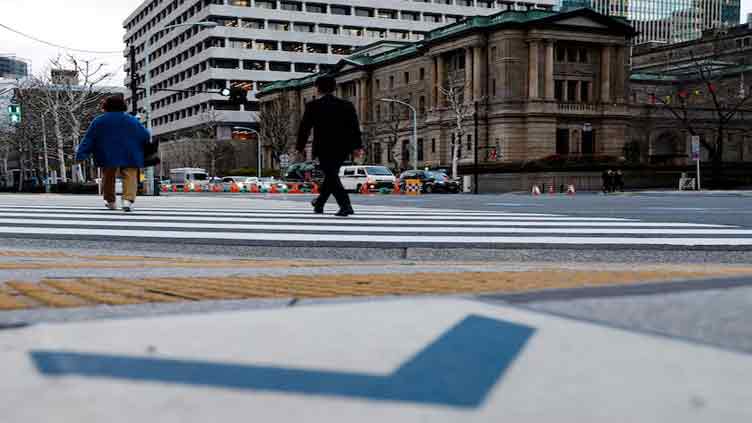BOJ policymaker warns Japan may miss inflation target from 2025

Business
Sees sluggish consumption, slowing global growth
- Calls for scrutinising smaller firms' wage negotiation outcome
- Dovish outlier's view highlights uncertain Japanese rate hike path
- Country's economy shrank an annualised 2.0pc in the first quarter as companies and households reduced spending
SAPPORO (Reuters) – Japanese inflation fall short of the central bank's 2 per cent target next year if domesitc consumption stagnates, its dovish policymaker Toyoaki Nakamura said on Thursday, highlighting uncertainty over the timing of further interest rate hikes.
Read more: Domestic demand, household spending forbidden topics in Pakistan?
Nakamura, a sole dissenter to the Bank of Japan's decision to exit negative interest rates in March, also warned of recent weak signs in consumption and slowing global growth that have clouded the outlook for Japan's economy.
"While resilient, [Japan] household spending has been sluggish recently as growth in disposable income has been small compared with rises in wages," Nakamura said.
"I'm not confident that wage rises will be sustained" as small-sized mid-sized firms have yet to undertake sufficient reforms to boost profits and keep raising pay, he said.
In current projections made in April, the nine-member board's median forecast is for core consumer inflation to hit 1.9pc in both the fiscal year beginning in April 2025, and the one following in fiscal 2026.
"My view is that inflation may not reach 2pc from fiscal 2025 onward" if households curb spending and discourage companies from raising prices further, Nakamura said in a speech to business leaders in Japan's northernmost city of Sapporo.
Read more: Japan's big firms offer largest pay rises in decades
While big firms offered bumper pay hikes in this year's annual wage negotiations with unions, there was uncertainty on whether smaller counterparts – which hire 80pc of Japan’s workforce – can follow suit, Nakamura said.
Rising social welfare costs and a growing number of pensioners meant households' disposable income has not risen as much as the wage increases suggest, he said, adding that some households likely tapped savings to weather rising living costs.
"Real wages need to turn positive and households' disposable income to rise more, for a cycle of rising income and expenditure to strengthen," Nakamura said, adding that it was appropriate to maintain current monetary policy for the time being.
Read more: Japan real wages down for 20th straight month in November
While Nakamura is a dovish outlier in the nine-member board, his views highlight lingering uncertainties over whether the BOJ will see conditions fall in place to raise interest rates this year from current near-zero levels.
Japan's economy shrank an annualised 2.0pc in the first quarter as companies and households reduced spending, casting doubt on the central bank's view of a moderate recovery.
Analysts expect growth to rebound in the current quarter, but a weak yen is weighing on household sentiment by pushing up the cost of imports for fuel and food.
BOJ Governor Kazuo Ueda has said the central bank will raise rates again if underlying inflation, which takes into account various price gauges, accelerates toward 2pc as it projects.
Many market players expect the BOJ to raise [Japanese interest] rates again this year, though they are divided on whether it will happen in the third or fourth quarter.


